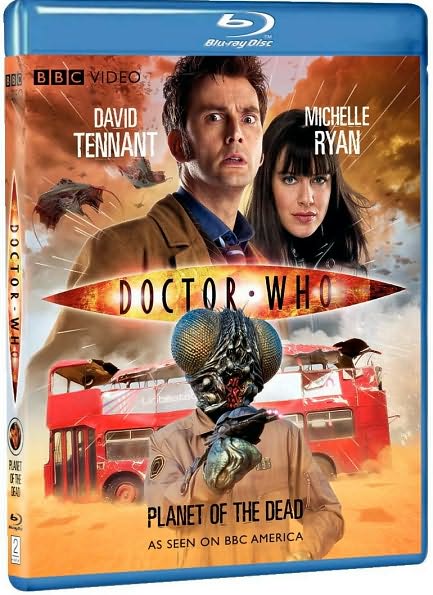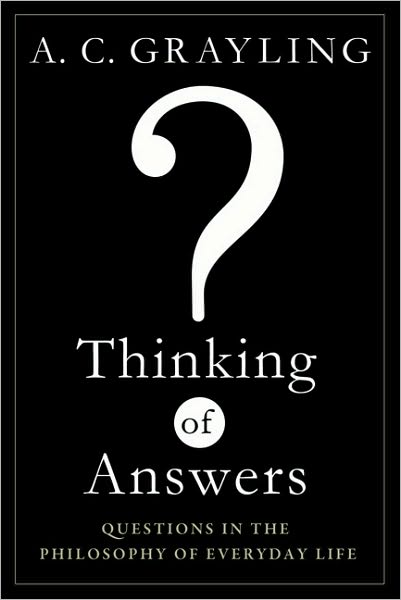
MORE SAMPLE QUESTIONS:
If beauty existed only in the eye of the beholder, would that make it an unimportant quality?
Can ethics be derived from evolution by natural selection?
If both sides in a conflict can passionately believe that theirs is the just cause, does this mean that the idea of justice is empty?
Does being happy make us good? And does being good make us happy?
Are human beings especially prone to self-deception?
Monthly Archives: July 2011
48 GOOD BOOKS

SUNY at Buffalo (home of the Kelley Collection) has issued a list of “48 Good Books.” The idea is that an undergraduate student would have this list to inspire them to read a book per month for their 4-year stay. The details on the selection process and the complete annotated list can be found here. Here’s just the stripped-down list:
1. Soul of a Citizen: Living with Conviction in Challenging Times by Paul Rogat Loeb
2. Stars in Their Courses: The Gettysburg Campaign, June-July 1863 by Shelby Foote
3. The Killer Angels by Michael Shaara
4. Crime and Punishment by Fyodor Dostoyevsky
5. He, She and It by Marge Piercy
6. The Frugal Superpower: America’s Global Leadership in a Cash-Strapped Era by Michael Mandelbaum
7. Why the West Rules—for Now: The Patterns of History, and What They Reveal About the Future by Ian Morris
8. Through the Language Glass: Why the World Looks Different in Other Languages by Guy Deutscher
9. Bread Givers: A Novel: A Struggle Between a Father of the Old World and a Daughter of the New by Anzia Yezierska
10. Giants in the Earth: A Saga of the Prairie by O. E. Rolvaag
11. Nectar in a Sieve by Kamala Markandaya
12. The Good Earth by Pearl S. Buck
13. The Dark Child by Laye Camara
14. The Physician by Noah Gordon
15. The Farming of Bones by Edwidge Danticat
16. Things Fall Apart by Chinua Achebe
17. Confessions by Bishop of Hippo Saint Augustine
18. Silent Spring by Rachel Carson
19. Waiting for the Barbarians by J. M. Coetzee
20. The Corrections by Jonathan Franzen
21. Civilization and Its Discontents by Sigmund Freud
22. The Prince by Niccolò Machiavelli
23. The Complete Essays by Michel de Montaigne
24. The God of Small Things by Arundhati Roy
25. The Tempest by William Shakespeare
26. Walden by Henry David Thoreau
27. Democracy in America by Alexis de Tocqueville
28. The Aeneid by Virgil
29. Zeitoun by Dave Eggers
30. Farm hands: Hard Work and Hard Lessons from Western New York Fields by Tom Rivers
31. Ecotopia: The Notebooks and Reports of William Weston by Ernest Callenbach
32. Ain’t No makin’ it: Aspirations and Attainment in a Low-Income Neighborhood by Jay MacLeod
33. The Tipping Point by Malcolm Gladwell
34. The Shock Doctrine: The Rise of Disaster Capitalism by Naomi Klein
35. The Immortal Life of Henrietta Lacks by Rebecca Skloot
36. Darkness Spoken: Collected Poems of Ingeborg Bachmann by Ingeborg Bachmann
37. A Dog’s Purpose by W. Bruce Cameron
38. Eating Fire: Selected Poetry 1965-1995 by Margaret Atwood
39. Madame Curie, A Biography by Eve Curie
40. Eating Animals by Jonathan Safran Foer
41. Waiting for Godot by Samuel Beckett
42. The Affluent Society by John Kenneth Galbraith
43. The Snow Leopard by Peter Matthiessen
44. The Beautyful Ones Are Not Yet Born by Ayi Kwei Armah
45. Surely You’re Joking, Mr. Feynman! Adventures of a Curious Character by Richard Phillips Feynman
46. The Hour of the Star by Clarice Lispector
47. Austerlitz by Winfried Georg Sebald
48. The Death of Woman Wang by Jonathan D. Spence
DOCTOR WHO: PLANET OF THE DEAD [Blu-ray]
BORDERS sent me a 40% off coupon for any single DVD so I picked up this diverting bit of fluff. David Tennant plays the 10th Doctor. He meets up with a jewel thief, Michelle Ryan, and the London double-decker bus they’re on goes through a worm-hole to a desert planet a galaxy away. Yes, this is typical Doctor Who nonsense, but the production values are top-notch. The desert scenes were shot in Dubai. Along with the episode, there’s a 60-minute “Doctor Who Confidential” where the stars, the producers, the director, the writers all talk about how the shooting of the episode both proved challenging and frustrating. If you’re recovering from knee surgery, something as light and frothy as DOCTOR WHO: Planet of the Death is just what the doctor ordered. GRADE: B+
THE SISTERS BROTHERS By Patrick DeWitt
 The Sisters Brothers will divert you with its edgy energy. GRADE: B
The Sisters Brothers will divert you with its edgy energy. GRADE: B
U.S. WOMEN’S SOCCER TEAM VS. JAPAN
 I’m not a soccer fan, but I admit I did watch the U.S. Women’s Soccer team come back from the dead and tie Brazil last week. Abby Wambach’s amazing header with 30 seconds left in the game was one of the more unlikely goals I’ve ever seen. Then, in the shoot-out, the U.S. Women’s soccer team’s goalie, Hope Solo (great name!), made a key save that allowed the U.S. to win. I watched the dull game against France where the U.S. women came to sudden life near the end of the game to score a 3-1 win. Now, the U.S. Women’s Soccer Team is one win away from a world title. I’ll be watching again this afternoon to see if this group can overcome the Japanese team. I don’t think soccer will ever be a major sport in the U.S. It’s too tedious. Americans love scoring. Watching any sporting event for 90+ minutes with little or no scoring is not going to gain a large viewership in this country.
I’m not a soccer fan, but I admit I did watch the U.S. Women’s Soccer team come back from the dead and tie Brazil last week. Abby Wambach’s amazing header with 30 seconds left in the game was one of the more unlikely goals I’ve ever seen. Then, in the shoot-out, the U.S. Women’s soccer team’s goalie, Hope Solo (great name!), made a key save that allowed the U.S. to win. I watched the dull game against France where the U.S. women came to sudden life near the end of the game to score a 3-1 win. Now, the U.S. Women’s Soccer Team is one win away from a world title. I’ll be watching again this afternoon to see if this group can overcome the Japanese team. I don’t think soccer will ever be a major sport in the U.S. It’s too tedious. Americans love scoring. Watching any sporting event for 90+ minutes with little or no scoring is not going to gain a large viewership in this country.
HARRY POTTER & THE DEATHLY HALLOWS (Part 2)

As Jeff Meyerson noted, Harry Potter & The Deathly Hallows (Part 2) doesn’t have an intro or a synopsis, it jumps right back into the story that was suspended at the end of Harry Potter & The Deathly Hallows (Part 1). So you need to walk into this movie knowing where you are in the sequence of events. The writer and director also assume you’ve read the Harry Potter books, too, because nothing is explained. But, once you get past those caveats, the action in this film is fast and furious. I found Harry Potter & The Deathly Hallows (Part 1) a bit draggy in parts. There’s none of that in this sequel. I’ve seen all the Harry Potter movies and I’d have to say this concluding film is the best one of them all. For a movie franchise that’s taken in over $6 billion, that’s saying something. GRADE: A
FORGOTTEN BOOKS #125: WALKING DEAD MAN By Hugh Pentecost
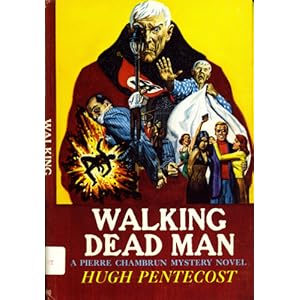 Hugh Pentecost (aka, Judson Philips) wrote over a 100 crime and mystery novels. In 1973, Pentecost was named a Grand Master by the Mystery Writers of America. Pentecost’s first story, “Room Number 23,” was published in 1925. Pentecost went on to a long, prolific career that ended with his death in 1989. Of all of Pentecost’s various series, I enjoy those about Pierre Chambrun, the manager of a luxury hotel, the best. And, one of the best Chambrun mysteries is Walking Dead Man. Walking Dead Man features an assassination attempt on the second richest man in the world in Pierre Chambrun’s penthouse. Plenty of devious plotting and surprises follow. Although Hugh Pentecost is pretty much forgotten now, his fine mysteries deserve to be read. Here’s a list of the books in Pentecost’s Pierre Chambrun series:
Hugh Pentecost (aka, Judson Philips) wrote over a 100 crime and mystery novels. In 1973, Pentecost was named a Grand Master by the Mystery Writers of America. Pentecost’s first story, “Room Number 23,” was published in 1925. Pentecost went on to a long, prolific career that ended with his death in 1989. Of all of Pentecost’s various series, I enjoy those about Pierre Chambrun, the manager of a luxury hotel, the best. And, one of the best Chambrun mysteries is Walking Dead Man. Walking Dead Man features an assassination attempt on the second richest man in the world in Pierre Chambrun’s penthouse. Plenty of devious plotting and surprises follow. Although Hugh Pentecost is pretty much forgotten now, his fine mysteries deserve to be read. Here’s a list of the books in Pentecost’s Pierre Chambrun series:
The Cannibal Who Overate (1962)
The Shape of Fear (1964)
The Evil That Men Do (1966)
The Golden Trap (1967)
The Gilded Nightmare (1969)
Girl Watcher’s Funeral (1969)
The Deadly Joke (1971)
Birthday, Deathday (1972)
Walking Dead Man (1973)
Bargain with Death (1974)
Time of Terror (1975)
The 14 Dilemma (1976)
Death After Breakfast (1978)
Random Killer (1979)
Beware Young Lovers (1980)
Murder in Luxury (1981)
With Intent to Kill (1982)
Murder in High Places (1983)
Remember to Kill Me (1984)
Murder Round the Clock (1985)
Nightmare Time (1986)
Murder Goes Round and Round (1988)
A MOST DANGEROUS BOOK By Christopher B. Krebs
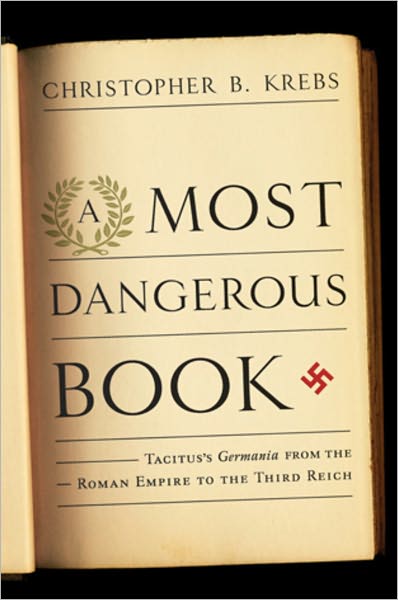
THE TAO OF TRAVEL By Paul Theroux
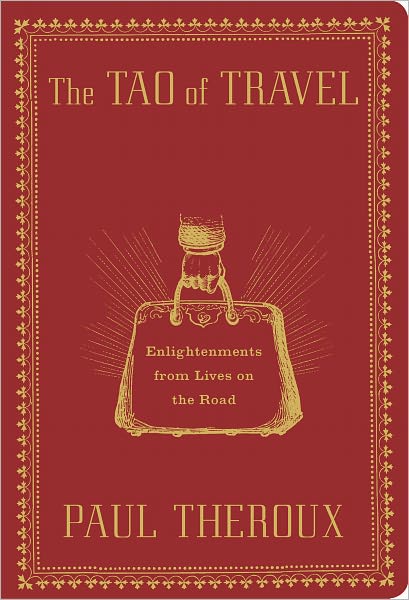
Table of Contents
Preface: The Importance of Elsewhere ix
1. Travel in Brief 1
2. The Navel of the World 23
3. The Pleasures of Railways 26
Travel Wisdom of Henry Fielding 39
4. Murphy’s Rules of Travel 41
5. Travelers on Their Own Books 47
6. How Long Did the Traveler Spend Traveling? 55
Travel Wisdom of Samuel Johnson 75
7. The Things That They Carried 78
8. Fears, Neuroses, and Other Conditions 85
9. Travelers Who Never Went Alone 93
Travel Wisdom of Sir Francis Galton 105
10. Travel as an Ordeal 108
11. English Travelers on Escaping England 117
12. When You’re Strange 121
Travel Wisdom of Robert Louis Stevenson 127
13. It Is Solved by Walking 130
14. Travel Feats 147
15. Staying Home 158
Travel Wisdom of Freya Stark 167
16. Imaginary Journeys 171
17. Everything Is Edible Somewhere 181
18. Rosenblum’s Rules of Reporting 198
Travel Wisdom of Claude Lévi-Strauss 201
19. Perverse Pleasures of the Inhospitable 203
20. Imaginary People 210
21. Writers and the Places They Never Visited 215
Travel Wisdom of Evelyn Waugh 231
22. Travelers’ Bliss 234
23. Classics of a Sense of Place 238
24. Evocative Name, Disappointing Place 256
Travel Wisdom of Paul Bowles 259
25. Dangerous, Happy, Alluring 262
26. Five Travel Epiphanies 271
27. The Essential Tao of Travel 2
AN EDUCATION


Carey Mulligan plays a precocious teenager named Jenny growing up in middle-class England during the 1960s. She enters a relationship with an older man (Peter Sarsgaard) and before the movie ends, Jenny has undergone more of an education than she bargained for. Nick Hornby wrote the screenplay based on an autobiographical article published in GRANTA by British journalist Lynn Barber. I was fascinated by Carey Mulligan’s performance that goes from school girl to anguished woman in 100 minutes. GRADE: B+
